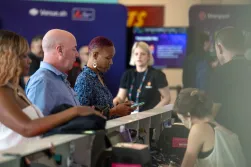Uber Chief Executive Officer Travis Kalanick rang up Tesla CEO Elon Musk last year to propose a partnership on self-driving cars, according to Bloomberg, citing an upcoming book.
The discussion came after Apple invested $1 billion in Didi Chuxing, then a fierce competitor of Uber in China. Kalanick pitched Musk on teaming up against Apple, according to Wild Ride, a book by Fortune magazine’s Adam Lashinsky scheduled for release next week.
“I said, ‘Look man, we should partner,’“ Kalanick recalled in the book. “Elon spent the rest of the call convincing me that it’s too far out, and it’s not realistic, that I should just stick to what we do best and be focused, or I’m going to f--- it all up. That’s when I knew Tesla was competing.“
At the time, Tesla was rolling out the semi-autonomous driving system Autopilot to its vehicles, and work was already underway within Uber on its own self-driving technology. As Musk was playing coy with Kalanick, one of the Uber CEO’s top deputies learned from a Tesla executive that autonomous cars were a top priority for the carmaker, Kalanick said in the book.
Days after the call, Musk put out a 10-year plan for Tesla. The 1,500-word manifesto, published in July, included a proposal for an Uber-like ride-hailing service allowing Tesla owners to make money by renting out their robocars. A person close to Musk said he declined the partnership offer but that he didn’t attempt to dissuade the Uber CEO from working on self-driving cars.
Uber works with Daimler and Volvo on self-driving cars, but Kalanick has long expressed admiration for Tesla. Steve Jurvetson, an investor in the automaker, said in 2015 that Kalanick wanted to buy 500,000 Teslas if they were fully autonomous by 2020. Uber has since given up the battle with Apple in China by selling its business there to Didi.
On a private jet last summer, Kalanick said Uber may not need investment bankers to go public, according to the book. Michael, who has overseen much of Uber’s fundraising efforts in recent years, said the company could instead conduct a reverse merger, in which Uber would buy a public company in order to list its shares on the market. Kalanick offered another idea: Instead of paying bankers 3 percent of the money raised, the company could donate the fees to charity.



















